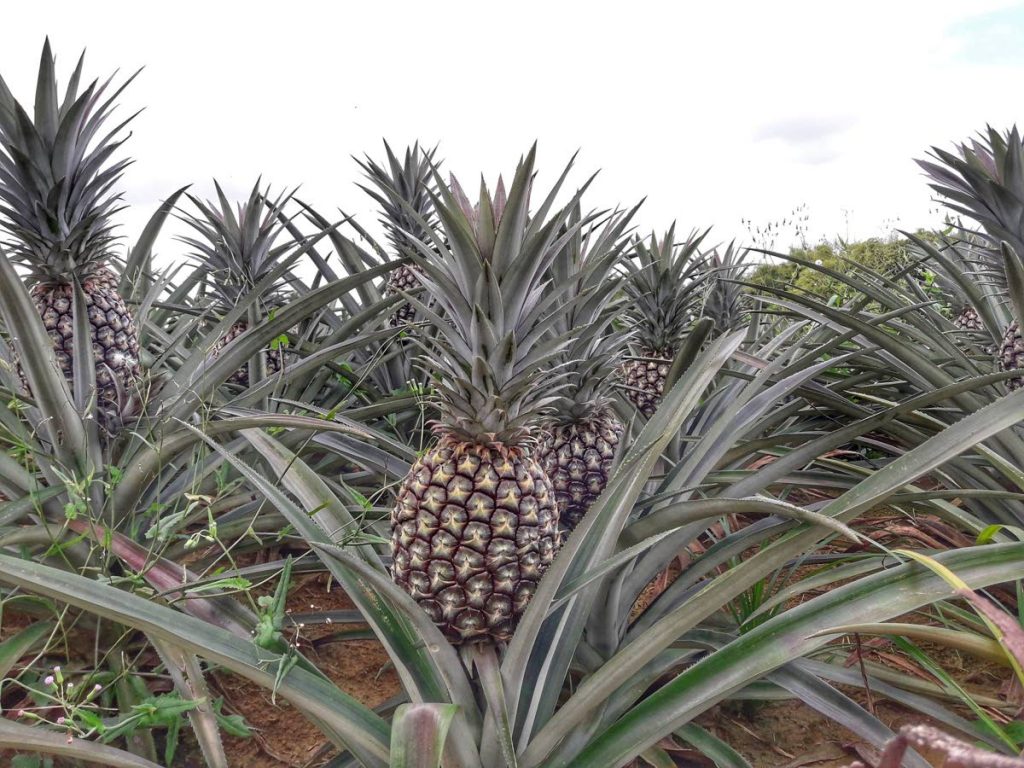Patent the pineapple

By SHANE SUPERVILLE
Intellectual property legislation is needed to protect unique strains of pineapple found exclusively in Trinidad from being cultivated elsewhere without permission.
Specifically, the pineapples grown in Tableland should be patented, John Alleyne, adviser to the Prime Minister on agricultural matters, recommended as he spoke at the opening of The University of the West Indies (The UWI) Agri Tech Expo held last Thursday at the St Augustine campus.
"The pineapples in Tableland are beautiful and it's something that I've never seen in any other part of the world. It struck me that this was unique to Tableland. We need to safeguard what we have. Have it patented so we can have it as part of our national goals," advised Alleyne, an agricultural economist.
While TT has produced unique fruits and vegetables over the years, the lack of appropriate legislation has caused these food crops to be cultivated in different parts of the globe effectively causing a loss of revenue, said Alleyne. He cited the loss of the Moruga Scorpion Pepper and the Double Chaconia to growers in the US state of California.
Referring to the close relationship of growers and academics through the citrus industry in Florida, Alleyne commended UWI for their proactive approach to research and funding of projects which show potential in reviving the local agriculture industry.
"At the University of Florida, growers pay towards research, because they understand the importance of research to their trade, especially in citrus," he said, urging the same be done locally.
Agricultural economist Omardath Maharaj, who also spoke at the forum, said a lack of funding continues to present a major challenge to farmers and manufacturers who are forced to do more with less, leading to increased challenges with crop turnover.
Maharaj, who serves as an economist for the TT Pineapple Growers’ Association in Tableland, also said there was much more behind the challenge of food security than the issue of money and the lack of sufficient legislation and policy continues to hinder any long-term growth.
“If we have the policy, the infrastructure, the financial resource and the human resource will fall into place.”
The association, Maharaj said, has already engaged the Intellectual Property Office, the Ministry of Legal Affairs and the Attorney General to protect the Tableland Sugarloaf pineapple, which has already attracted international attention after being featured on the Sesame Street children’s television programme last year. Part of the process, Maharaj revealed, included receiving geographic indication for the fruit, which involved investigating the particular pineapple variety, tissue, taste and other attributes.
“It not only puts us on the map but it also ensures economic returns to the global marketplace. We do not produce to satisfy the export market currently since the majority of production is absorbed through fresh fruit consumption locally. However, if we secure and protect our indigenous knowledge and this particular commodity through patents and technical cooperation we are inadvertently guaranteeing the future feasibility of this particular industry to future generations," Maharaj said.
He added that the potential for the fruit through proper policy is enormous, citing the use as jams, preservatives and other products. He said at the moment the volumes produced are enough to satisfy the local fresh fruit market.
The two-day forum was aimed at providing greater marketing and investment opportunities for members of the agricultural sector. Several entrepreneurs showcased the latest innovations in crop cultivation and unique varieties of produce.

Comments
"Patent the pineapple"